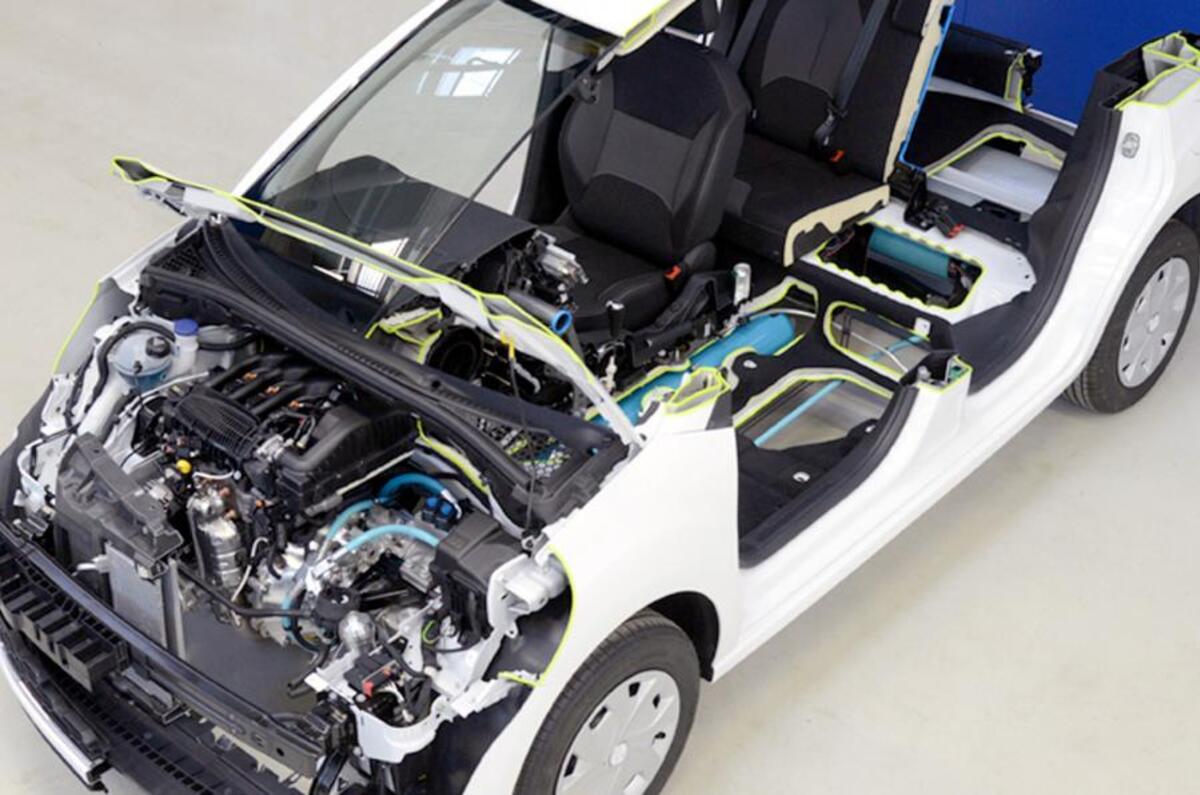Peugeot’s Hybrid Air engine can’t feasibly be released due to legislation that is “killing” some automotive technology, according to the company’s boss.
Peugeot CEO Maxime Picat said Hybrid Air is not currently feasible because governments have chosen to back alternative technologies.
“If tomorrow we spend hundreds of millions releasing [Hybrid Air] and the government decides that no, we are giving an incentive for plug-in hybrid and electric but not for your technology, then you are killing it,” he said.
Picat is clearly frustrated with this situation, saying incentive schemes like the £5000 grant for plug-in vehicles in the UK has restricted the technology that a company can offer. It is this, rather than the lack of a partner to make the system, that has prevented its progress.
“Governments are fixing very ambitious targets in terms of CO2 - good news for the planet. That is their role and I strongly support that,” he said. “Sometimes, too often in my personal opinion, they tell you what target to reach and what technology you have to push forward, which is nonsense.
“There are so many examples in politics, in the UK, in France and in other countries where a politician has decided what is good and what is bad in automotive,” continued Picat. “But they are closing, in a way, the openness of the competition and the new technologies that a carmaker can bring to the market so today it is clearly too risky to launch Hybrid Air.”
However, he insisted that the technology, which uses compressed air to assist or take over from a three-cylinder internal combustion engine, has not been killed off permanently, saying that it has been well researched and is ready to go. “We are mastering Hybrid Air technology; we know it works," he said. "We designed a car, we produced it, we have tested it, it is really efficient. We know that one day government will say: ‘Now we have to count from well to wheel’, and if they do so, Hybrid Air is a very efficient technology.”
Picat said Peugeot would still be open to a partner to help share the cost to take the technology to market, as this would also help to share the risk. “It is always a subject where we are happy to share," he added. "It lowers the lobbying risk. If one day there is a lobby against your technology, you are two companies rather than one.”
Peugeot said it would be scaling back development of the technology in January of this year, saying it needed to partner with other manufacturers for the system to be viable. Prototype models to be fitted with the technology include the 2008 and 208, as well as the Cactus Airflow 2L concept.





Join the debate
Add your comment
@xxxx - noone even mentioned
Oil Power
How else can you explain this governments drive to grease the wheels of the oil industry giving them tax breaks & at the same time legislating for them to override local council decisions when they vote against fracking here in the UK. This government says it supports reducing our Co2 footprint while reducing tax incentives to renewables and supporting the oil & gas lobby !
face it
Writing something four times